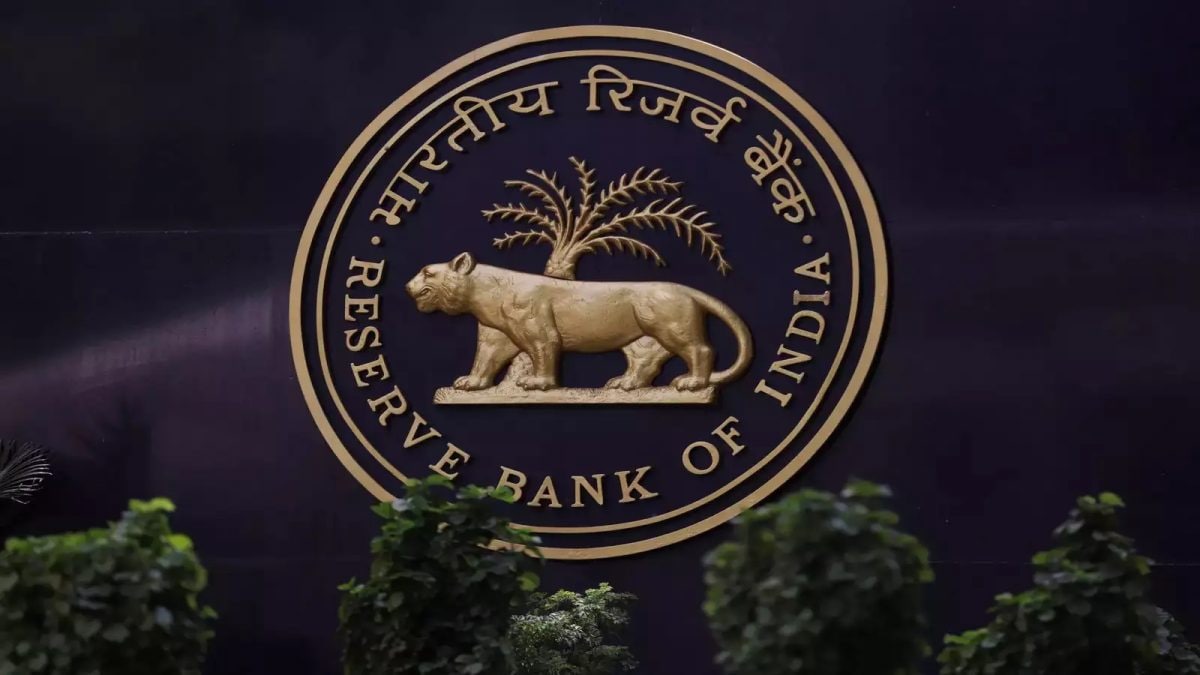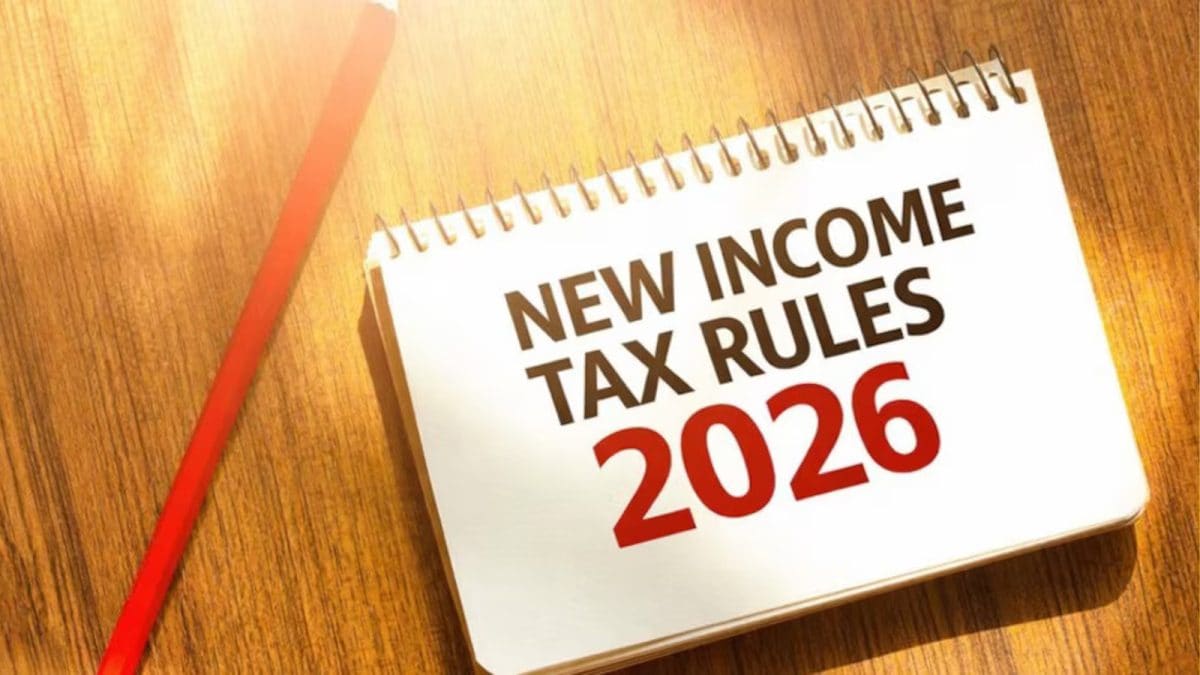Business
Why vinyl records like Taylor Swift’s ‘The Life of a Showgirl’ are protected from tariffs

Taylor Swift performs onstage during The Eras Tour at Wembley Stadium on June 21, 2024, in London.
Kevin Mazur | Getty Images
On Friday, 24-year-old Tayra McDaniels will scamper down the stairs of her East Village apartment building and pick up four preordered vinyl editions of Taylor Swift’s new album, “The Life of a Showgirl” — each a different color and with a different collectible cover. Then she’ll head over to Target to snag three more exclusive CDs and another vinyl, she said.
The haul will cost her more than $200. “I know it’s a lot of money,” she said. “But I don’t want to miss out.”
One point of reprieve in the price: McDaniels and other vinyl fans won’t have to worry about tariffs on their hauls.
Vinyl records, CDs and cassettes were spared from the Trump administration’s late-August rollback of the “de minimis” exemption. The exemption, which had allowed packages valued at less than $800 to be imported without tariffs, was designed to simplify customs for low-cost imports and reduce fees for both consumers and small retailers. Trump’s rollback of the exemption allowed tariffs to take effect on such shipments — but not on physical music.
A Cold War-era carveout known as the Berman Amendment to the International Emergency Economic Powers Act prevents presidents from regulating the flow of “informational materials,” a category that includes physical music, books and artwork.
“If vinyl had gotten tariffed, you could have possibly seen the price of a record going up to $40 and $50,” Berklee College of Music professor Ralph Jaccodine told CNBC. “So, this is welcome news for people buying physical music.”
The exemption, which is protecting one of the fastest-growing segments of the music industry, is also welcome on Wall Street.
Vinyl sales have roared back in the past decade, particularly during the pandemic, driven by younger buyers and an appetite for nostalgia. The PVC discs now account for nearly three-quarters of all U.S. physical music revenue — a nearly 20% jump since 2020, according to data from the Recording Industry Association of America.
“It is very encouraging and a bit of a relief that physical music formats have been classified as exempt to tariffs,” said Ryan Mitrovich, general manager of the Vinyl Alliance, a nonprofit promoting physical media that works with manufacturers, distributors and music labels. “However, we’re not really taking anything for granted here with the chaotic climate around trade disruptions.”
The sales boom has been lucrative for record labels such as Universal Music Group, or UMG, which works with Swift.
Her last album, “The Tortured Poets Department,” sold 3.49 million physical and digital copies, according to entertainment data company Luminate, driving a 9.6% jump in UMG’s second-quarter revenue in 2024 compared with the same period in 2023. Physical revenue, which includes vinyl, surged by 14.4% during the quarter.
Without a Swift album on shelves so far this year, UMG’s most recent earnings report, in July, showed a 4.5% uptick in revenue year over year, but physical revenue decreased by 12.4%. UMG shares fell 24% after the July earnings release.
Universal Music Group declined to comment.
The downturn could be short-lived. Estimates from Billboard predict that first-week vinyl sales of Swift’s new 12-track album, which debuts Friday, could top 1 million — breaking her own record of 859,000 for “The Tortured Poets Department.”
“Taylor Swift has unique ability to drive the market through her decisions of what and how to release music,” said Jaccodine, who has worked with artists such as Bruce Springsteen. “Swift’s release can and will likely cause a boom in the music business.”
Tariff trade-offs
Not everyone is celebrating the tariff exemptions. Some American record manufacturers say they’re missing out on business.
“We support the tariffs because it helps U.S. manufacturing, and we want to be a part of the wave of making things in the USA,” Alex Cushing, co-founder and president of Dallas-based Hand Drawn Records, told CNBC.
Most vinyl is pressed overseas, industry experts said, with the largest manufacturer, GZ Media, based in the Czech Republic. GZ CEO Michal Štěrba said the company has made top-selling albums for artists such as Lady Gaga, Madonna and U2. On average, the company produces 1 in 4 records from plants around the globe, including ones in Nashville and Memphis, Tennessee, he added.
“Our goal is to keep production as close to the customer as possible, so that a record sold in the U.S. is also made in the U.S.,” Štěrba told CNBC.
If tariffs were imposed, Štěrba said, costs would get passed on to consumers. The Czech Republic is part of the European Union, which faces a 15% blanket tariffs on EU exports to the U.S.
“By keeping tariff costs out of the supply chain — regardless of the product or country — consumers benefit through better pricing,” Štěrba said in a statement. “Ultimately, it’s usually the customer who has to pay a higher price if tariffs are applied.”
Cushing, a board member of the Vinyl Record Manufacturers Association, said he believes there would be more American jobs if tariffs were to apply to vinyl.
“We could put more hard-working Americans to work with good wages,” he said. “Our company makes 2 million records annually with a staff of just 60. If you want to grow manufacturing jobs, this would be a great industry.”
Cushing said U.S. manufacturers like his don’t have the capacity to handle the demand for an album on Swift’s scale. But for smaller-scale artists, he said, tariffs on imports could shift more business stateside.
“Our raw materials are tariffed, but with skyrocketing shipping and material costs globally, regional shipping in the U.S., coupled with having lower inventory, could help lower costs,” Cushing said.
Some American manufacturers preempted extra costs earlier this year.
“Tariffs were definitely forecasted, and the industry was preparing for this for quite a while,” Vinyl Alliance’s Mitrovich said. “We saw a lot of companies defend against this by increasing their stocks of ink, PVC and other things in the months leading up to the tariffs.”
A man browses through vinyl records.
SOPA Images | LightRocket | Getty Images
Artists’ earnings
For many artists, physical sales remain more lucrative than streaming.
On Spotify, earnings usually range between $0.003 and $0.005 per stream based on an artist’s contract with their record label, Jaccodine said. Meanwhile, artists typically enjoy between 10% and 25% of royalties on physical records, according to the American Society of Composers, Authors and Publishers.
“Unless you are just a handful of musicians, you basically are not making enough money from streaming to sustain,” Jaccodine said. “For artists large and small, merchandise like records, CDs, cassettes, hats, hoodies and ticket sales are the bread and butter.”
For comparison, Swift’s Eras Tour, which was the highest-grossing tour of all time, sold over $2 billion worth of tickets for 149 shows over two years, The New York Times reported. Meanwhile, she earned between $200 million and $400 million from streaming platforms over that same period, according to figures from Billboard.
Fans take photos with Taylor Swift’s new album “The Life of a Showgirl” at a Target store in New York City, U.S., Oct. 3, 2025.
Kylie Cooper | Reuters
Gen Z’s buying power
Analysts expect the vinyl market to keep expanding, though not at the explosive pace seen during the pandemic.
“The market for vinyl is strong and is likely to be for the foreseeable future, but there could always be supply troubles,” Jaccodine said.
Gen Z has fueled vinyl’s resurgence, industry experts said. Nearly 60% of 18- to 24-year-olds in a survey by music manufacturer Key Production said they listen to physical music, the highest of any demographic group. The survey was conducted Feb. 27-March 5, 2024, in the U.K., and had 503 respondents.
The vinyl comeback also kicked off an explosion in the number of “variants” released: collectible editions of albums or singles with alternative cover art, colored discs or vinyl-exclusive bonus tracks.
On TikTok, “vinyl hauls” rack up millions of views as fans show off rare variants and collections, sparking demand and motivating fans such as McDaniels to buy.
“It’s sort of like Pokémon where you ‘gotta catch ’em all,'” McDaniels said. “There’s FOMO [fear of missing out] if someone has a variant that you don’t.”
Experts said Gen Z’s interest in vinyl is also a response to digital burnout.
“So many groups are on their screens paying fees to have access to content but do not ever actually own anything, so this gives them physical ownership,” Cushing said. “Vinyl is counter to all the ease of modern music listening and that’s why people want it.”
No artist has capitalized on the trend more than Swift.
“The Tortured Poets Department” was 2024’s top album, accounting for over 6% of total album sales — more than seven times the next-best-selling artist, according to Luminate. Swift released 36 different album variants in the U.S. across digital and physical music.
“The Life of a Showgirl” comes in at least seven different variants of colored vinyl, each with a unique cover. For Swift and UMG, every exclusive edition of a vinyl record, CD or cassette has the potential to generate millions in extra revenue.
“Sales of Swift’s albums act as drivers for the fortunes of almost the entire music industry,” Jaccodine said. “Her fans are waiting with bated breath for the release, but so is the industry.”
For McDaniels and thousands of other superfans, the lingering question is how easy it will be to get the exclusive variants first.
“I know people think it’s crazy,” she said. “As long as a vinyl stays under $75 for a new release, I feel like it is worth it. It’s like an addiction to getting these, but I love collecting them.”
Business
RBI’s Rs 25,000-Crore Switch Auction On March 2nd And Its Impact On Bond Markets, Government Debt Strategy | Explained

Last Updated:
RBI Switch Auction On March 2: The Reserve Bank of India will conduct a government securities switch auction worth Rs 25,000 crore on March 2 between 10:30 AM and 11:30 AM


In the latest exercise, all securities, having maturities in FY27, are being replaced with bonds maturing after FY32.
RBI Switch Auction On March 2: The Reserve Bank of India (RBI) will conduct a government securities switch auction worth Rs 25,000 crore on March 2 between 10:30 AM and 11:30 AM, with results to be declared the same day and settlement scheduled for March 4. The move marks the third such operation this month and is aimed at smoothing India’s future debt repayment profile.
What is a switch auction?
A switch auction is a debt management tool through which the government exchanges bonds that mature soon with bonds that mature later. Instead of repaying investors in cash when near-term securities mature, the government offers them longer-dated securities. This effectively postpones repayment obligations without increasing total debt.
In the latest exercise, all securities, having maturities in FY27, are being replaced with bonds maturing after FY32, according to RBI data.
Why is RBI conducting it now?
The key trigger is the heavy redemption pressure expected in FY27, when government securities worth about Rs 5.47 lakh crore are scheduled to mature. By replacing these with bonds maturing after FY32, the authorities are spreading repayment obligations across future years. This reduces refinancing risk and prevents sudden spikes in borrowing needs.
How does it help the government?
India has already budgeted gross market borrowing of Rs 17.2 lakh crore. Large redemptions in a single year would force the government either to borrow more or use fiscal resources for repayment. Switch auctions smooth this maturity profile, making debt servicing more predictable and fiscally manageable.
What has happened so far this month?
Before this latest announcement, the RBI conducted two switch auctions in which securities worth Rs 84,804 crore were bought back and replaced. The repeated use of this tool signals a proactive debt-management strategy rather than a reactive measure.
Why markets watch switch auctions closely
Bond investors track such operations because they affect liquidity, yield curves and supply of long-term securities. Extending maturities can reduce pressure on near-term yields while increasing supply at the long end, influencing pricing across the sovereign curve.
The broader takeaway
The latest switch auction is part of a deliberate strategy to manage India’s rising debt stock more efficiently. By pushing repayments further into the future and avoiding bunching of maturities, policymakers aim to maintain stability in government borrowing costs and ensure smoother fiscal operations in coming years.
Follow News18 on Google. Join the fun, play games on News18. Stay updated with all the latest business news, including market trends, stock updates, tax, IPO, banking finance, real estate, savings and investments. To Get in-depth analysis, expert opinions, and real-time updates. Also Download the News18 App to stay updated.
February 26, 2026, 11:11 IST
Read More
Business
Vellayan Subbiah To Exit Cholamandalam Investment Finance Under Murugappa Family Pact

Last Updated:
Vellayan Subbiah, a scion of the Murugappa family, has reached a settlement with other promoter branches to realign ownership


Cholamandalam Investment Finance
Vellayan Subbiah, a scion of the Murugappa family, has reached a settlement with other promoter branches to realign ownership across key group companies, according to a report by Moneycontrol.com, citing people familiar with the matter. The agreement is expected to see Subbiah give up stake exposure linked to Cholamandalam Investment and Finance Company while consolidating his position in Tube Investments of India and CG Power and Industrial Solutions.
The arrangement, finalised after more than two years of negotiations, forms part of a broader plan by the Murugappa Group to separate ownership of the century-old conglomerate among three promoter factions while ensuring business continuity. Under the settlement, Subbiah is expected to relinquish exposure to Cholamandalam Investment — the group’s flagship lending arm — and instead retain and strengthen his alignment with Tube Investments and CG Power, including taking over or retaining stakes tied to those companies within the extended promoter structure, the report said. Emails sent to Subbiah and the Murugappa Group did not receive a response until publication.
The realignment follows prolonged internal discussions over the division of the diversified business empire, which reported revenue of more than $9 billion in FY23, after five generations of joint ownership through the family holding company Ambadi Investments.
Negotiations had earlier faced hurdles due to significant valuation divergences across group companies. As previously reported by The Economic Times on August 19, 2024, the turnaround of businesses overseen by Subbiah — particularly CG Power, Tube Investments and Cholamandalam Finance — had emerged as a sticking point in share-swap discussions among family factions.
The revival of CG Power proved especially pivotal. Since Tube Investments acquired control in 2020, CG Power has deleveraged, restored profitability and benefited from investor interest in domestic manufacturing, railways, power equipment and electronics supply chains. Its stock has surged since the takeover, making it one of the group’s most valuable listed assets. Tube Investments has also diversified beyond its legacy engineering base into green mobility, contract manufacturing and specialised industrial segments, strengthening its market position.
Cholamandalam Investment, meanwhile, has grown into one of India’s most valuable non-bank lenders, with a market capitalisation exceeding Rs 1 lakh crore. The uneven appreciation in these businesses complicated efforts to carve out three equal promoter blocs, with one faction seeking revisions to earlier share-swap assumptions and another resisting reopening agreed terms, people cited by Moneycontrol.com said.
Promoter ownership across Murugappa companies is largely routed through holding vehicles rather than direct individual shareholdings, but the concentration of value highlights why these firms were central to negotiations. The promoter group’s roughly 51–52 percent stake in Cholamandalam Investment is estimated to be worth about Rs 55,000–60,000 crore at current market levels. In Tube Investments, promoter ownership of around 45–46 percent translates into holdings valued at approximately Rs 20,000–22,000 crore. Through Tube Investments’ controlling position in CG Power, the promoter group effectively holds about 58–59 percent of that company, valued at roughly Rs 45,000–50,000 crore.
Beyond these, the family controls about 56–57 percent in Coromandel International, worth around Rs 18,000–20,000 crore; 42–43 percent in Carborundum Universal, valued near Rs 9,000–10,000 crore; and 44–45 percent in EID Parry, worth roughly Rs 3,500–4,000 crore. Tube Investments also indirectly controls about 70 percent of Shanti Gears, valued at approximately Rs 2,500–3,000 crore.
The final arrangement appears to align ownership more closely with operational leadership. Subbiah, a fourth-generation member of the family, is widely credited within the group for steering the revival of CG Power and expanding Tube Investments into new manufacturing and mobility segments, making these businesses natural anchors for his promoter bloc under the new structure.
The Murugappa Group, which comprises nearly 30 companies across fertilisers, engineering, financial services, abrasives, sugar and mobility solutions, operates under a long-standing governance charter that separates ownership from management, the Moneycontrol.com report noted.
Follow News18 on Google. Join the fun, play games on News18. Stay updated with all the latest business news, including market trends, stock updates, tax, IPO, banking finance, real estate, savings and investments. To Get in-depth analysis, expert opinions, and real-time updates. Also Download the News18 App to stay updated.
February 26, 2026, 10:51 IST
Read More
Business
Yes Bank Under Scanner As RBI Summons Executives Over Forex Card Breach

Last Updated:
RBI has summoned senior officials of Yes Bank following a major data breach involving the Yes Bank–BookMyForex multi-currency forex card


Reserve Bank of India headquarters in Mumbai.
The Reserve Bank of India (RBI) has summoned senior officials of Yes Bank following a major data breach involving the Yes Bank–BookMyForex multi-currency forex card, two people aware of the development told The Economic Times (ET).
According to the report, card details and CVV numbers of several users were allegedly compromised. The central bank has sought a detailed explanation from the bank on how its systems may have been breached and the sequence of events that led to the exposure of sensitive customer data.
“The RBI has sought a comprehensive briefing from Yes Bank’s senior management on the root cause of the breach, the timeline of events, and the adequacy of the bank’s cybersecurity framework,” one of the persons cited by ET said. “The regulator wants clarity on how sensitive card data, including CVV numbers, may have been exposed and what immediate containment measures have been implemented.”
Yes Bank declined to comment on the RBI’s queries but said an internal investigation had identified fraudulent transactions involving 15 merchants in a Latin American country on February 24. Transactions worth Rs 2.54 crore were approved across 5,000 customers, while 688 unauthorised attempts amounting to around Rs 90 lakh were blocked. The bank said it is working with the card network to initiate chargebacks and ensure that affected customers do not face financial losses.
Separately, BookMyForex said it does not store customers’ sensitive card information and that its systems were neither breached nor compromised during the period in question.
The RBI has also sought details on how sensitive card data—particularly CVVs—was stored and protected, whether encryption and prescribed security protocols were followed, and why existing cyber controls failed to prevent the breach. In addition, the regulator is reviewing the timeline of detection and reporting, the robustness of third-party risk management and oversight, the number of customers impacted, and the steps taken to block cards, prevent misuse and mitigate losses. It has also asked for clarity on internal accountability, supervisory lapses and remedial measures to prevent a recurrence, ET reported.
Follow News18 on Google. Join the fun, play games on News18. Stay updated with all the latest business news, including market trends, stock updates, tax, IPO, banking finance, real estate, savings and investments. To Get in-depth analysis, expert opinions, and real-time updates. Also Download the News18 App to stay updated.
February 26, 2026, 07:53 IST
Read More
-

 Entertainment1 week ago
Entertainment1 week agoQueen Camilla reveals her sister’s connection to Princess Diana
-

 Tech1 week ago
Tech1 week agoRakuten Mobile proposal selected for Jaxa space strategy | Computer Weekly
-

 Politics1 week ago
Politics1 week agoRamadan moon sighted in Saudi Arabia, other Gulf countries
-

 Entertainment1 week ago
Entertainment1 week agoRobert Duvall, known for his roles in "The Godfather" and "Apocalypse Now," dies at 95
-

 Politics1 week ago
Politics1 week agoTarique Rahman Takes Oath as Bangladesh’s Prime Minister Following Decisive BNP Triumph
-

 Business1 week ago
Business1 week agoTax Saving FD: This Simple Investment Can Help You Earn And Save More
-

 Tech1 week ago
Tech1 week agoBusinesses may be caught by government proposals to restrict VPN use | Computer Weekly
-

 Sports1 week ago
Sports1 week agoUsman Tariq backs Babar and Shaheen ahead of do-or-die Namibia clash












